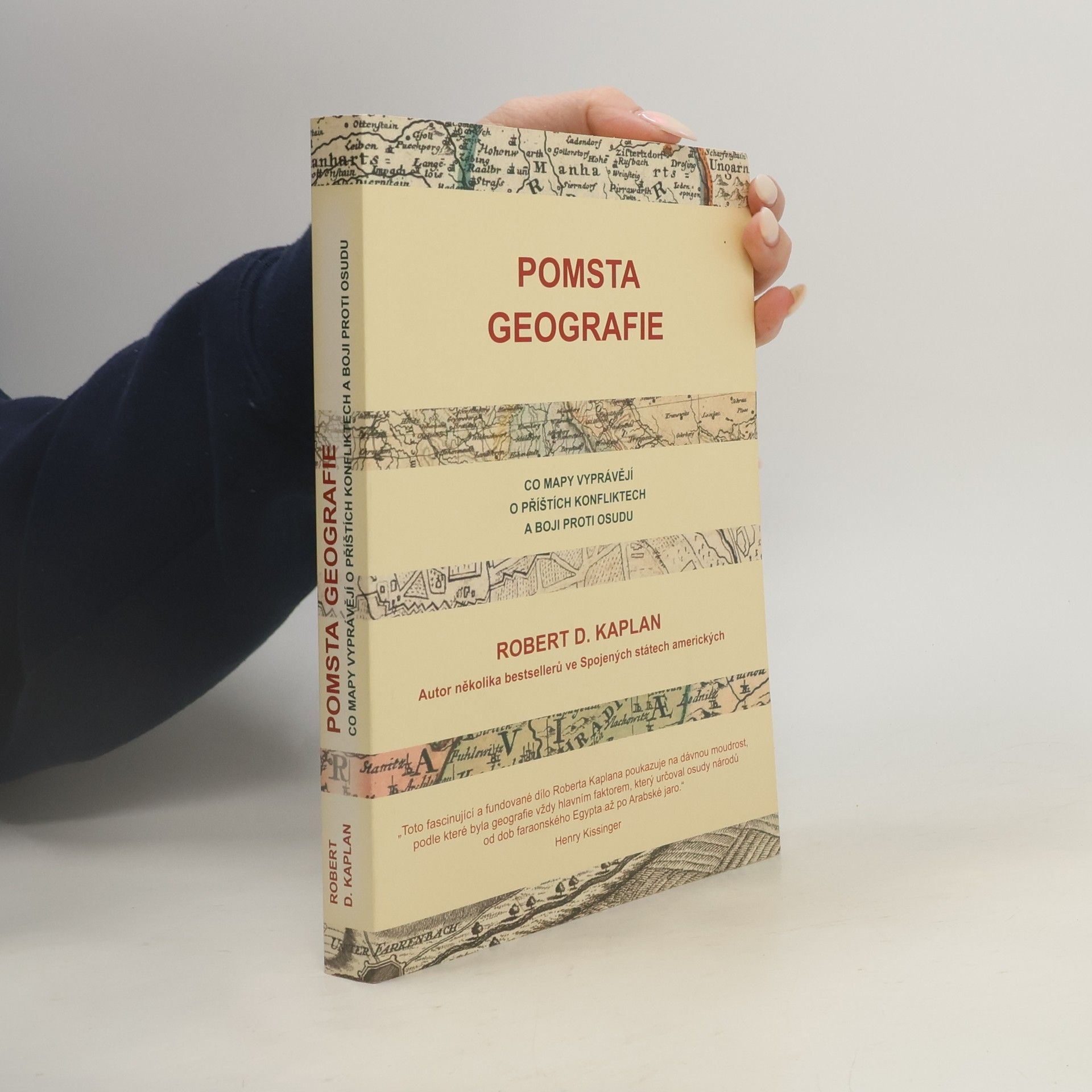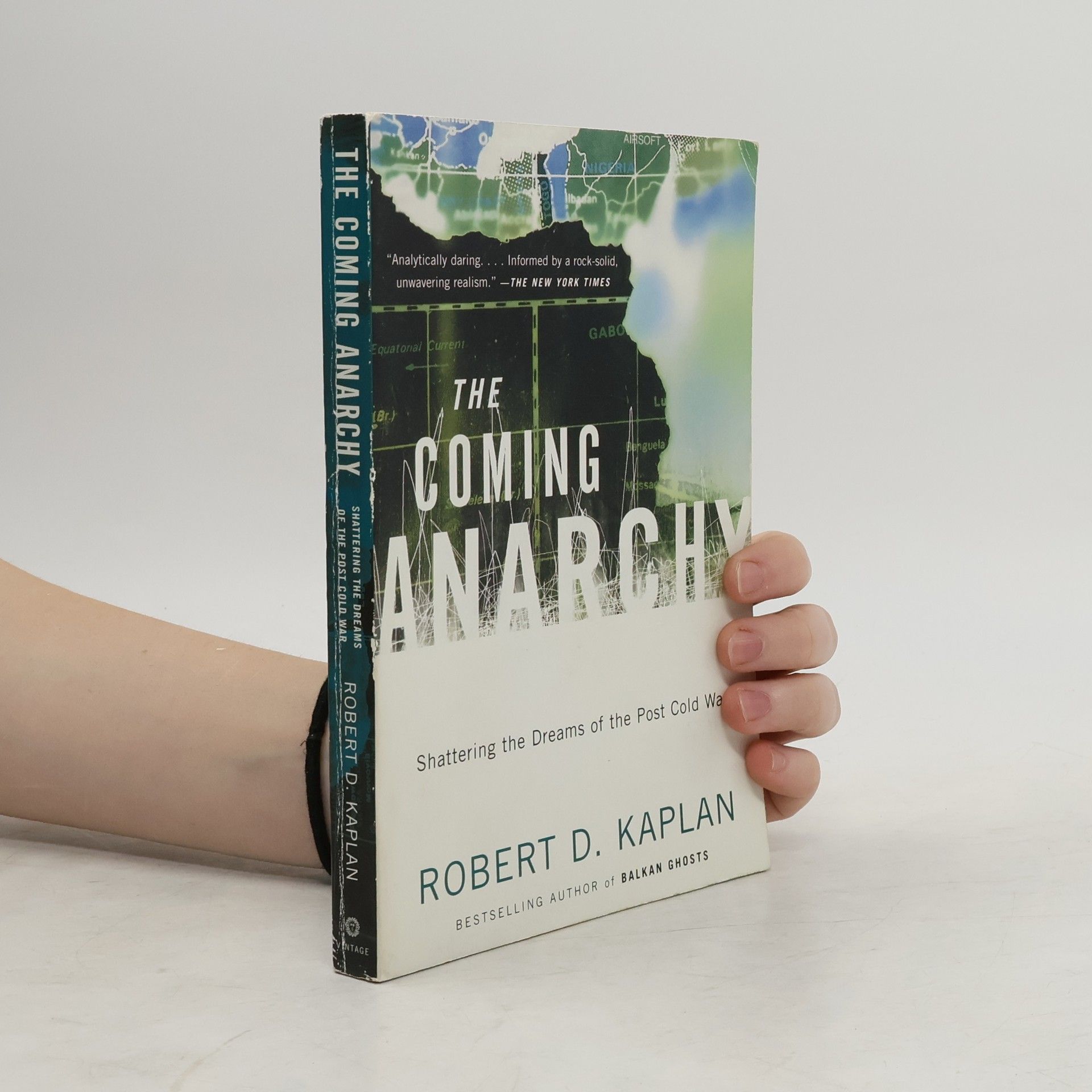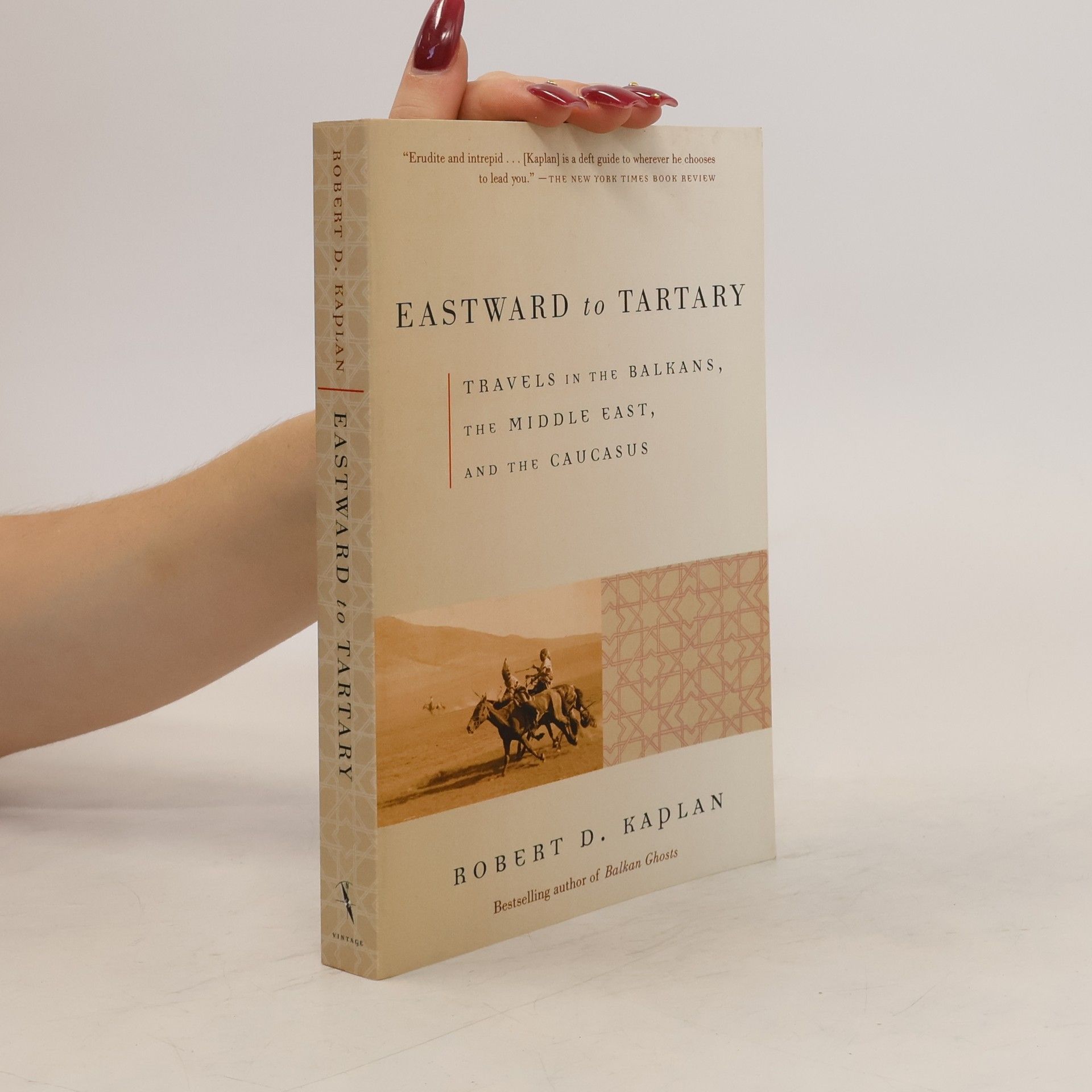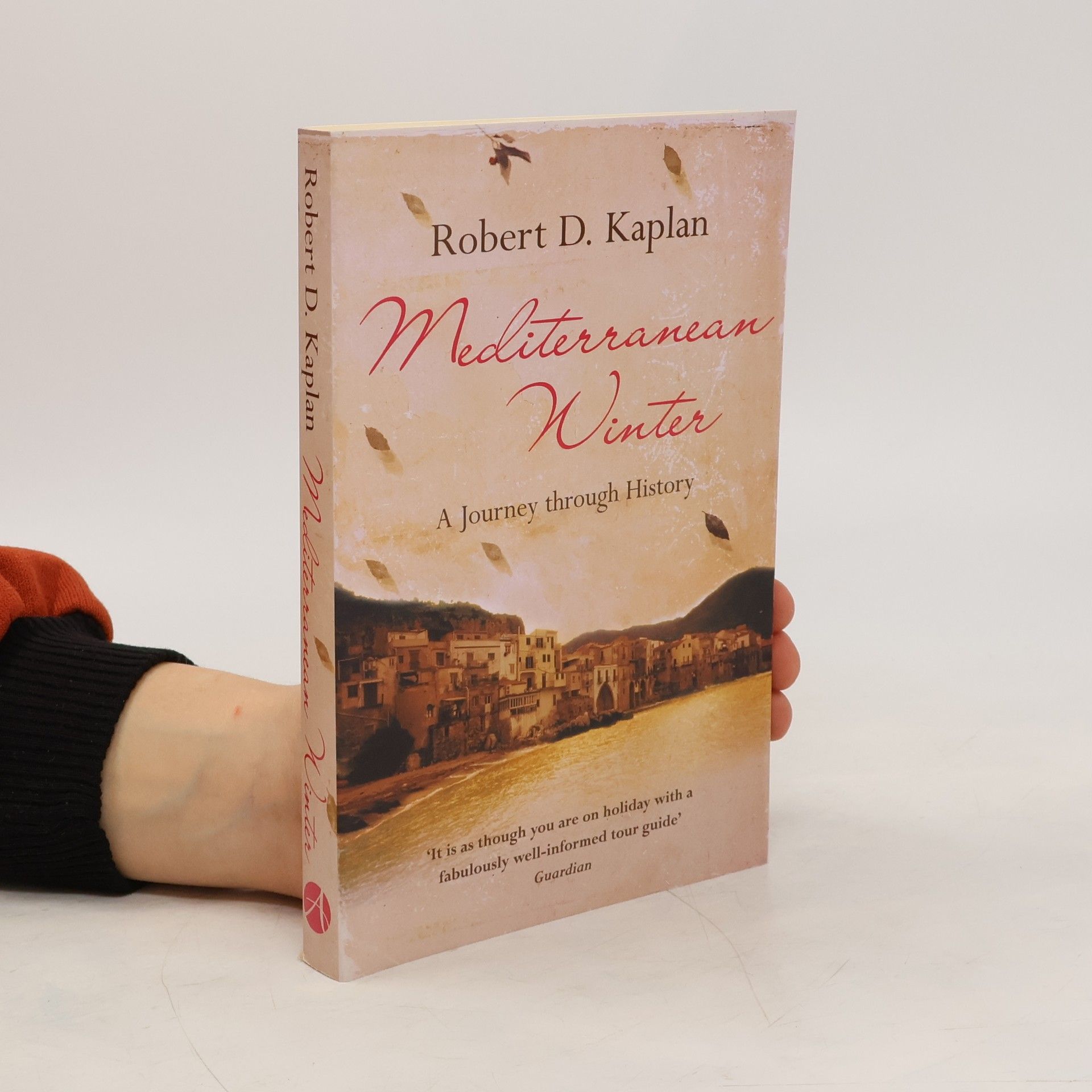Kniha představuje svébytnou meditaci na téma Spojené státy a jejich role ve světě. Autor se na základě vzpomínek na otce, který u něj pravidelnými výlety na historická místa probudil lásku k historii Ameriky, vydává na „roadtrip“ napříč Spojenými státy z Východu na Západ. Při této jízdě je veden úvahami různých autorů o Americe, zejména pak postřehy Bernarda DeVota, jenž si byl vědom, jak mocně geografie zasahuje a ovlivňuje roli USA ve světě. Nejprve cestuje zalesněnou „vertikální“ krajinou východu, pokračuje horizontální krajinou prérií, aby nakonec stanul na břehu Pacifiku a mohl se zabývat postavením své vlasti ve světě. V průběhu celé cesty si autor zaznamenával zajímavé myšlenky o minulosti i současnosti Spojených států a jejich obyvatel, které pro českého čtenáře mohou být někdy značně provokativní, nicméně nutí k zamyšlení a představují sondu do americké duše.
Robert D. Kaplan Knihy
Robert David Kaplan je americký novinár, ktorý sa venuje analýze globálnych vzťahov a geopolitiky. Jeho písanie sa často zameriava na znovuobjavenie kultúrnych a historických napätí, ktoré boli dočasne potlačené počas studenej vojny. Kaplan skúma dynamiku moci a jej vplyv na svetové dianie, pričom jeho podnetné eseje vyvolávajú debaty na akademickej pôde aj vo vláde. Jeho práca ponúka hlboký vhľad do komplexných vzťahov medzi históriou, kultúrou a medzinárodnou politikou.







Robert Kaplan, bestselling author of Balkan Ghosts, offers up scrupulous, far-ranging insights on the world to come in a spirited, rousing, and provocative book that has earned a place at the top of the reading lists of the world's policy makers. The end of the Cold War has not ushered in the global peace and prosperity that many had anticipated. Volatile new democracies in Eastern Europe, fierce tribalism in Africa, civil war and ethnic violence in the Near East, and widespread famine and disease—not to mention the brutal rift developing as wealthy nations reap the benefits of seemingly boundless technology while other parts of the world slide into chaos—are among the issues Kaplan identifies as the most important for charting the future of geopolitics. Historical antecedents in Gibbon's Decline and Fall and in the legacies of statesmen such as Henry Kissinger contribute to this bracingly prophetic framework for addressing the new global reality. Bold, erudite, and profoundly important, The Coming Anarchy is a compelling must-read by one of today's most penetrating writers and provocative minds.
Pomsta geografie. Co mapy vyprávějí o příštích konfliktech a boji proti osudu
- 384 stránok
- 14 hodin čítania
Kniha zřejmě nejvýznamnějšího současného autora z oboru geopolitiky, která je jedním z hlavních děl na téma globálního vývoje světa, která v poslední době vyšla. Autor se snaží popsat základní předurčení historického vývoje jednotlivých oblastí světa tím, v jaké geografické poloze se nacházejí a jak tato ovlivňuje jejich osudy a další možný vývoj. Jde o jednu z nejdiskutovanějších knih z oblasti mezinárodní politiky a vztahů minulého roku.
"The Good American is a story about courage, intense loneliness, and the State Department's golden age during the late Cold War and post-Cold War. It is also a celebration of ground level reporting and getting a worm's eye view of crisis zones. Robert Gersony, a high-school dropout later awarded a bronze star in Vietnam, spent over four decades on the ground in virtually every war and natural disaster zone in the world. Interviewing hundreds of refugees and displaced persons in each place to assess humanitarian crises, Gersony's research and thorough reports had an immense, underappreciated impact on US foreign policy across the globe. In every case, his recommendations made it smarter and more humane, often dramatically so. In his career as a journalist, Robert D. Kaplan often crossed paths with Gersony while covering the "hot" moments of the Cold War and its aftermath. Even as a biography, this is Kaplan's most personal book to date, and through Gersony's story, he makes a poignant case for how American diplomacy should be conducted--with a clear eye toward facts on the ground--at a time when diplomacy is too often being left behind."-- Provided by publisher
The Greater Middle East, spanning from the Mediterranean to China, has long been a crossroads of empires, including Macedonian, Mongol, Ottoman, Russian, and British. However, the dissolution of these empires in the twentieth century has left postcolonial states grappling with instability due to power struggles, leadership vacuums, and arbitrary borders set by departing imperial powers, often disregarding local geography and political realities. In this exploration, Robert Kaplan delves into the region's complex history to uncover how past events shape contemporary issues and how the pursuit of stability frequently clashes with democratic ideals. Kaplan advocates for a realistic approach to understanding the Greater Middle East, highlighting the failures of Western democracy promotion and the emergence of a new economic imperialism, particularly as China's ambitions position it as a crucial link between Europe and East Asia. The Greater Middle East remains a battleground for future great power conflicts, with centuries of imperial influence continuing to affect current political dynamics.
Athene Palace
- 368 stránok
- 13 hodin čítania
On the day that Paris fell to the Nazis, R. G. Waldeck was checking into the swankiest hotel in Bucharest, the Athene Palace. A cosmopolitan center during the war, the hotel was populated by Italian and German oilmen hoping to secure new business opportunities in Romania, international spies cloaked in fake identities, and Nazi officers whom Waldeck discovered to be intelligent but utterly bloodless. A German Jew and a reporter for Newsweek, Waldeck became a close observer of the Nazi invasion. As King Carol first tried to placate the Nazis, then abdicated the throne in favor of his son, Waldeck was dressing for dinners with diplomats and cozying up to Nazi officers to get insight and information. From her unique vantage, she watched as Romania, a country with a pro-totalitarian elite and a deep strain of anti-Semitism, suffered civil unrest, a German invasion, and an earthquake, before turning against the Nazis. A striking combination of social intimacy and disinterest political analysis, Athene Palace evokes the elegance and excitement of the dynamic international community in Bucharest before the world had comes to grips with the horrors of war and genocide. Waldeck’s account strikingly presents the finely wrought surface of dinner parties, polite discourse, and charisma, while recognizing the undercurrents of violence and greed that ran through the denizens of Athene Palace.
The Ends of the Earth. A Journey at the Dawn of the 21st Century
- 496 stránok
- 18 hodin čítania
Kaplan travels from the devastated countries of West Africa and the fundamentalist enclaves of Egypt and Iran to the culturally explosive lands of Central Asia, India, Pakistan and Southeast Asia, providing intimate portraits of their peoples.
Author of Balkan Ghosts, Robert D. Kaplan now travels from West Africa to Southeast Asia to report on a world of disintegrating nation-states, warring nationalities, metastasizing populations, and dwindling resources. He emerges with a gritty tour de force of travel writing and political journalism. Whether he is walking through a shantytown in the Ivory Coast or a death camp in Cambodia, talking with refugees, border guards, or Iranian revolutionaries, Kaplan travels under the most arduous conditions and purveys the most startling truths. Intimate and intrepid, erudite and visceral, The Ends of the Earth is an unflinching look at the places and peoples that will make tomorrow's headlines--and the history of the next millennium. "Kaplan is an American master of...travel writing from hell...Pertinent and compelling."--New York Times Book Review "An impressive work. Most travel books seem trivial beside it."--Washington Post Book World
Eastward to Tartary
Travels in the Balkans, the Middle East, and the Caucasus
Eastward to Tartary , Robert Kaplan's first book to focus on a single region since his bestselling Balkan Ghosts , introduces readers to an explosive and little-known part of the world destined to become a tinderbox of the future.Kaplan takes us on a spellbinding journey into the heart of a volatile region, stretching from Hungary and Romania to the far shores of the oil-rich Caspian Sea. Through dramatic stories of unforgettable characters, Kaplan illuminates the tragic history of this unstable area that he describes as the new fault line between East and West. He ventures from Turkey, Syria, and Israel to the turbulent countries of the Caucasus, from the newly rich city of Baku to the deserts of Turkmenistan and the killing fields of Armenia. The result is must reading for anyone concerned about the state of our world in the decades to come.
Mediterranean Winter
- 256 stránok
- 9 hodin čítania
Mediterranean Winteris a lyrical account of Robert Kaplan's journey in the off season around the Mediterranean, retracing the footsteps of his youth. A beautifully written meditation on the golden age of travel and the pleasures of history, it takes us from Tunisia, once proud Carthage, rival to Rome, through Sicily, up the Dalmatian coast and into Greece.Mediterranean Winteris alive with the spirits of the past, from Hadrian and Homer to Hannibal and Ibn Khaldun, and closes with a fascinating pilgrimage to Patrick Leigh Fermor, whom Kaplan visits in his hideaway on the Aegean.



